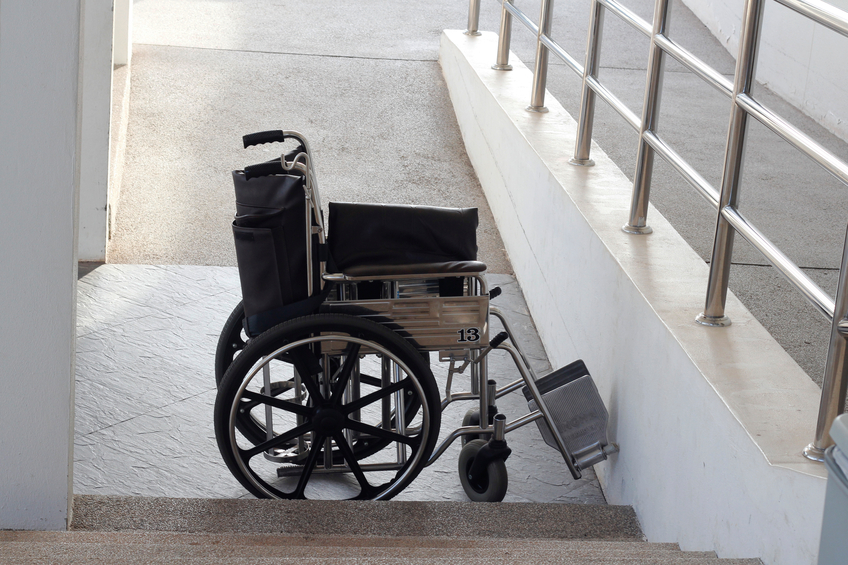Louisiana Transportation, ADA and Ethics 15 PDH Discount Package 2
Courses in this Package
Roundabout Planning and Operation (C05-011)
Impact of Exempt Vehicles on HOV Lanes (C05-012)
Americans with Disabilities Act (ADA) Overview (A02-005)
Public Right of Way Accessibility Guidelines (PROWAG) (C02-041)
Ethical Issue: Deciding if Something is a Gift or a Bribe (LE1-007)

This online engineering PDH course presents the factors that lead up to the decision to construct a roundabout with an approximate configuration at a specific location, preceding the detailed analysis and design of a roundabout. By confirming that there is good reason to believe that roundabout construction is feasible and that a roundabout offers a sensible method of accommodating the traffic demand, these planning activities make unnecessary the expenditure of effort required subsequently.
This course also presents methods for analyzing the operation of an existing or planned roundabout. These methods allow a transportation analyst to assess the operational performance of a facility, given information about the usage of the facility and its geometric design elements. An operational analysis produces two kinds of estimates: (1) the capacity of a facility, i.e., the ability of the facility to accommodate various streams of users, and (2) the level of performance, often measured in terms of one or more measures of effectiveness, such as delay and queues.
This 5 PDH online course is applicable to traffic engineers, transportation planners, conceptual and detailed designers, and other technical professionals who are involved in the planning and operation of roundabouts.
This PE continuing education course is intended to provide you with the following specific knowledge and skills:
- Considering the various constraints for constructing a roundabout
- Determining a preliminary lane configuration and selecting a roundabout category based on capacity requirements
- Performing the analysis appropriate to the roundabout selection category
- Determining the space requirements and feasibility
- Understanding the traffic operations at roundabouts
- Obtaining data required to evaluate the performance of a roundabout
- Estimating the capacity of the various roundabout configurations
- Applying measures of effectiveness determine the performance of a roundabout and estimating these measures
- Familiarizing with the different computer software packages available to implement the capacity and performance analysis procedures
In this professional engineering CEU course, you need to review Chapter 4, "Planning" and Chapter 5, "Operation", of the Federal Highway Administration Publication FHWA-RD-00-067, "Understanding Roundabouts".
Upon successful completion of the quiz, print your Certificate of Completion instantly. (Note: if you are paying by check or money order, you will be able to print it after we receive your payment.) For your convenience, we will also email it to you. Please note that you can log in to your account at any time to access and print your Certificate of Completion.

This online engineering PDH course presents information on defining high-occupancy vehicle (HOV) lane capacity, options for using available HOV lane capacity, and analyzing HOV exemption policies. It examines the potential impact of certain exempt vehicles on the operation of high-occupancy vehicles (HOV) facilities. The possible exempt vehicles examined in this course include environmentally friendly vehicles, and law enforcement, emergency services, and designated public transportation vehicles. It also presents the experience with the use of HOV lanes by these types of exempt vehicles. Finally, it examines the potential issues and approaches for allowing exempt vehicles to use HOV lanes.
Traffic congestion continues to be a major issue in metropolitan areas throughout the country. The agencies responsible for the surface transportation system in these regions use a variety of approaches and techniques to address concerns relating to traffic congestion, mobility, and air quality. The use of HOV facilities represents one approach in use or being considered in many urban areas.
This 5 PDH online course is applicable to traffic engineers, transportation planners, conceptual and detail designers, and other technical professionals who will be considering HOV exemption policies as well as monitoring and evaluating the use of HOV lanes by exempt vehicles.
This PE continuing education course is intended to provide you with the following specific knowledge and skills:
- Learning about HOV facilities and HOV lane capacities
- Evaluating options for using HOV lane capacities
- Analyzing HOV exemption policies on traffic flow
- Considering HOV exemption for environmentally friendly vehicles
- Considering HOV exemptions for law enforcement vehicles
- Considering HOV exemptions for law public transportation vehicles
In this professional engineering CEU course, you need to review the Federal Highway Administration Publication FHWA-OP-05-058, "Potential Impact of Exempt Vehicles on HOV Lanes".
Upon successful completion of the quiz, print your Certificate of Completion instantly. (Note: if you are paying by check or money order, you will be able to print it after we receive your payment.) For your convenience, we will also email it to you. Please note that you can log in to your account at any time to access and print your Certificate of Completion.

This online engineering PDH course provides an overview of the Americans with Disabilities Act as it applies to facility design.
For individuals with disabilities, the Americans with Disabilities Act gives civil rights protections similar to those provided to individuals on the basis of race, color, sex, national origin, age, and religion. It guarantees equal opportunity for individuals with disabilities in public accommodations, employment, transportation, state and local government services, and telecommunications.
This 2 PDH online course is intended for all engineers involved in the design of facilities accessible to the public and regulated by the
This PE continuing education course is intended to provide you with the following specific knowledge and skills:
- Familiarizing with the types of facilities covered
- Understanding "public accommodation"
- Learning about the various requirements for accessible facilities
- Understanding when a "direct threat" to health or safety is present
- Understanding "readily achievable" barrier removal for existing facilities
- Familiarizing with the legal enforcement mechanisms available
- Learning about available tax credits and deductions for employers
In this professional engineering CEU course, you need to review the course document titled, "American with Disabilities Act (ADA) Overview" which is based on the original document (http://www.ada.gov/qandaeng.htm) published by the U.S. Equal Employment Opportunity Commission of the Civil Rights Division of the U.S. Department of Justice (DOJ), last updated on
Upon successful completion of the quiz, print your Certificate of Completion instantly. (Note: if you are paying by check or money order, you will be able to print it after we receive your payment.) For your convenience, we will also email it to you. Please note that you can log in to your account at any time to access and print your Certificate of Completion.

This online engineering PDH course presents the main requirements for
This 2 PDH online course is applicable to civil engineers, construction managers, architects and inspectors who are involved with construction in the public right of way.
This PE continuing education course is intended to provide you with the following specific knowledge and skills:
- Familiarizing with the government agencies involved with PROWAG
- Understanding which projects require PROWAG compliance
- Knowing the differences between the current ADA requirements and PROWAG
- Learning about PROWAG sidewalk and slope requirements
- Learning about PROWAG curb ramp requirements
- Learning about PROWAG detectable warning requirements
- Understanding practical examples of reconstructing existing conditions to be PROWAG compliant
In this professional engineering CEU course you will review the main requirements of PROWAG along with practical design examples.
Upon successful completion of the quiz, print your Certificate of Completion instantly. (Note: if you are paying by check or money order, you will be able to print it after we receive your payment.) For your convenience, we will also email it to you. Please note that you can log in to your account at any time to access and print your Certificate of Completion.

This online engineering PDH course will establish, through the presentation of many examples, the principles of distinguishing between a gift and a bribe.
The federal government has formulated detailed rules covering gifts given to executive-branch employees in many situations. The rules are published in the Code of Federal Regulations (CFR) and are illustrated through many examples. Even though the examples are intended for government employees (many of whom are engineers), they also apply to private-sector engineers in similar situations. This course presents selected CFR examples that furnish guidance on the ethics of gift giving in situations that are especially relevant to engineers.
This 1 PDH online course is intended for engineers seeking guidance on distinguishing between ethical gift-giving and bribery.
This PE continuing education course is intended to provide you with the following specific knowledge and skills:
- Familiarizing with definitions of a bribe and a gift
- Knowing the bribe status of a gift based on a personal relationship
- Understanding the conditions under which gifts to spouses are acceptable
- Knowing the need to avoid even the appearance of a gift being a bribe
- Recognizing when gifts involving free attendance at meetings and conferences are acceptable
- Understanding the importance of the cumulative effect of receiving even small gifts on a periodic basis
- Learning the importance of gifts received when on assignment rather than outside of work
Upon successful completion of the quiz, print your Certificate of Completion instantly. (Note: if you are paying by check or money order, you will be able to print it after we receive your payment.) For your convenience, we will also email it to you. Please note that you can log in to your account at any time to access and print your Certificate of Completion.